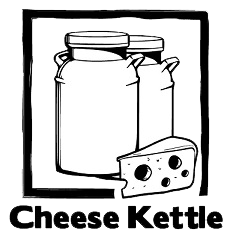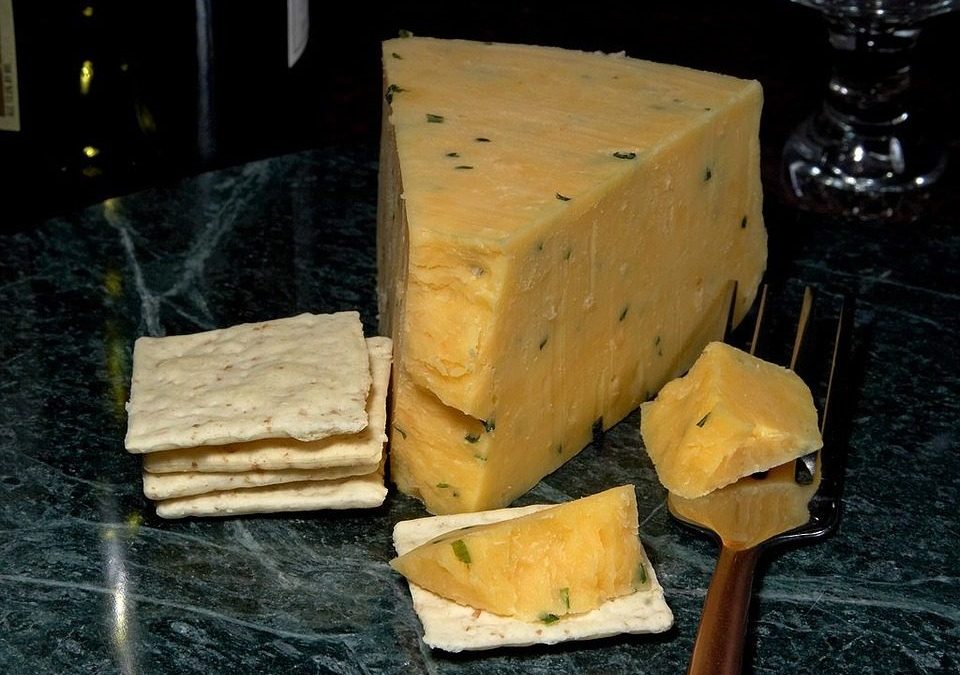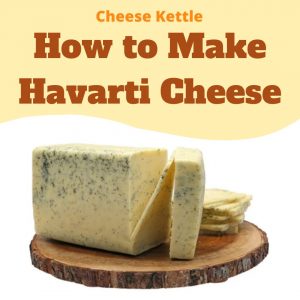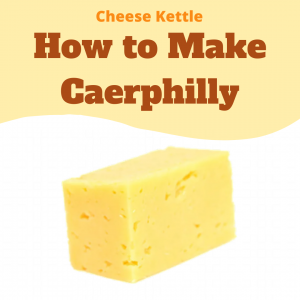Cotswold is a creamy and buttery cheese that has a sweet mild flavor and a crumbly firm texture. This traditional English cheese is a variation of the Double Gloucester cheese. Here’s how you can make your own Cotswold cheese.
Yield: approximately 900 g Cotswold cheese
Aging Time: less than 3 months
Ingredients
1. 8 L whole milk (don’t use ultra pasteurized milk)
2. 1/8 teaspoon Bioprox M265 Mesophilic Culture
3. 1/8 teaspoon Calcium Chloride (dissolved in ¼ cup non-chlorinated water)- add only if you are using pasteurized milk)
4. ¾ teaspoon liquid rennet (diluted in ¼ cup non chlorinated water)
5. 1 ½ tablespoon cheese salt
6. 4 drops annatto liquid (diluted in ¼ cup non chlorinated water)
7. 1 ½ teaspoon dried chives
8. 1 ½ teaspoon dried onions
Equipment
1. Large stainless pot
2. Thermometer
3. Spoon or ladle
4. Knife and curd cutter
5. Colander
6. Cheese cloth or butter muslin
7. Cheese hoops
8. Draining mat
9. Cheese press
Instructions
Reminder: Sterilize all your equipment before making cheese.
1. Heat the milk to 320 C.
2. Sprinkle the mesophilic culture on the milk’s surface. Allow the culture to rehydrate for 5 minutes. 3. Thoroughly mix the culture with the milk by stirring in an up- down motion for a minute.
3. Cover the pot and leave the milk to ripen for 45 minutes. Be sure the target temperature remains steady.
4. Gently stir the milk for 30 seconds. Add the annatto solution as you continue to stir. This gives the cheese a dark yellow color.
5. Add the Calcium Chloride solution. Continue to stir for about 1 minute.
6. Add the rennet. Stir again for another 1 minute.
7. Cover the pot again and allow the milk to set for 45 minutes or until you get a clean break. Keep the 320 C temperature steady.
8. Once you have a clean break, cut the curds into ¼ inch cubes.
9. Leave the curds to heal for 5 minutes.
10. After the curds have healed, gently stir it for 20 minutes while maintaining the 320 C temperature. After 20 minutes, you will notice that the curds have shrunk a bit.
11. Gradually raise the temperature to 400 C (increase the temperature by 10 C every 4 to 5 minutes) over a 35 minute period while continuously stirring.
12. Once you reach the target temperature, remove the heat. Stir for another 30 minutes.
13. Allow the curds to settle for 5 minutes.
14. Line the colander with cheesecloth or butter muslin. Pour the curds into the colander and drain for 5 minutes. You’ll notice that the curds have formed into a soft slab.
15. Put the curds back into the pot.
16. Break the curds into ½ inch sized pieces.
17. Add the salt and mill it into the curds.
18. Add the dried and onions. Gently but thoroughly mix.
19. Line the cheese hoop with cheese cloth or butter muslin. Scoop the curds into the hoop.
20. Press the cheese at a pressure of 5 kg for 15 minutes.
21. Remove the cheese from the press. Turn it over. Wrap and put it back in the cheese hoop. Press the cheese at a pressure of 15 kg for another 15 minutes.
22. Remove the cheese once again. Turn it over, redress and press at a 20 kg pressure for 2 hours.
23. Turn the cheese over again. Press at 23 kg for 24 hours.
24. Transfer the cheese on a draining mat and air dry for 2 days.
25. Wax or vacuum seal the Cotswold. Mature at a temperature of 130 C for 1 to 3 months, turning the cheese over once a week.
More Cheese Recipes
Available Dairy Processing Equipment
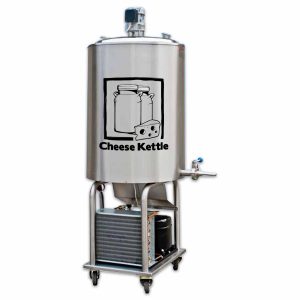
A milk pasteuriser with a chiller and heating with electrical heaters up to 100° C and as well as air cooled heat exchanger for cooling down to 4°C with cooling aggregate.
Separate heating / cooling unit.
Available Volume: 50 L, 100 L, and 200 L
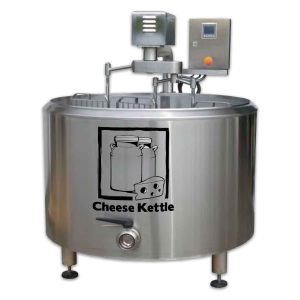
Cheese kettle vat it’s perfect for small artisan cheese factory’s or dairy processors. Comes in various sizes from 100 ltr up to 1,500 ltr square or round.
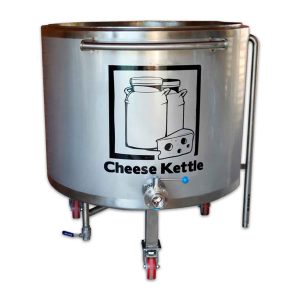
Tank is fitted with
• 3 x 9KW heating elements (total 27KW)
• made of 304 or 316 (marine grade stainless)
• circulation pump
• large 3″ butterfly valve
• set of food grade wheels
• double or single lid
• may be fitted with agitator if required
Cheese Kettle supplies cheese making equipment and ingredients, from starter cultures, cheese hoops and cheese paper to machineries like pasteurizers and cheese vats and butter churners. We can even customize our equipment based on your dairy processing needs. Talk to one of our experts. Contact us today!
